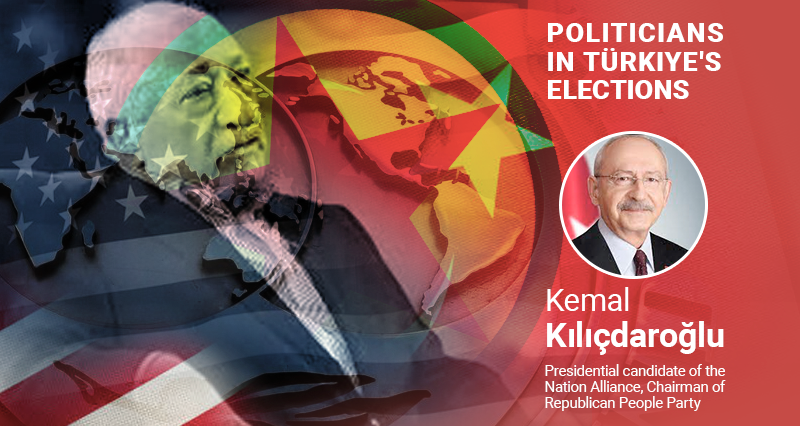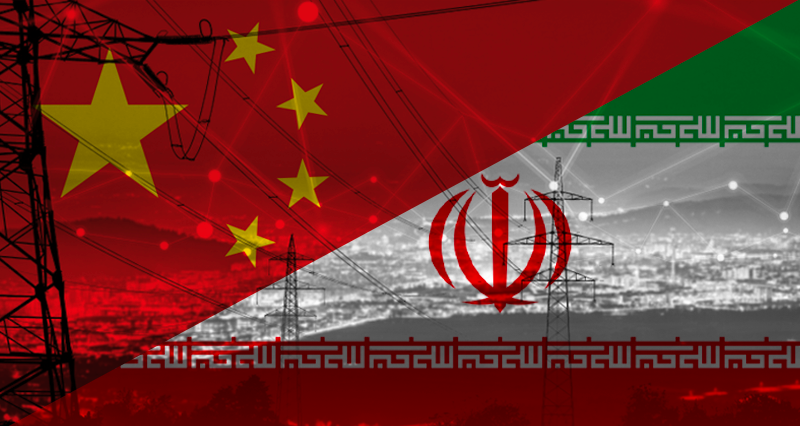Türkiye counts down to the May 14 elections. The ruling Recep Tayyip Erdoğan’s People’s Alliance is opposed by the Nation Alliance, a coalition of six parties, led by Kemal Kılıçdaroğlu, the leader of the Republican People’s Party (CHP). The alliance, also known in the public as the “Table of Six”, announced quite late, on March 6, its decision to nominate Kılıçdaroğlu as its presidential candidate against Erdoğan. Thus, the Table, after having gone through serious disputes – which sometimes led to crises – during the 1,5 long negotiations between the six parties, seems to put an end to internal discussions. The Nation Alliance is composed of the social democratic CHP and five right-wing conservative parties.
The CHP is the founding party of the Republic of Türkiye and its first chairman was Mustafa Kemal Atatürk. Kemal Kılıçdaroğlu, the party’s seventh chairman, has been in this office for 13 years. The most important argument often used by his political rivals is the fact that Kılıçdaroğlu has lost all of the electoral contests against Erdoğan to date. Yet in the 2019 local elections, Kılıçdaroğlu achieved significant success by ranking first in major cities such as Istanbul, Ankara, Izmir, Adana and Antalya. The strategy for the upcoming elections will be the same as in 2019. However, there are still many who believe that Kılıçdaroğlu is not the best candidate to face Erdoğan. First among them is the biggest partner in the alliance, Meral Akşener, the leader of the Good Party, who recently caused a major crisis at the Table of Six.
Kılıçdaroğlu’s weak points
Kılıçdaroğlu, who likes to refer to Tunceli – his birthplace in eastern Türkiye – as ‘Dersim’, the feudal name of the region in the pre-Republican era, had the image of an ‘honest politician’ as the biggest trump card in his early political career. Although this image has remained unchanged until today, both Kılıçdaroğlu and his party have undergone a significant transformation. Kılıçdaroğlu, who has years of experience in the bureaucracy and made a name as a fighter against corruption after entering politics, has two major election promises for the Turkish people: 1) to retrieve the hundreds of billions of Turkish liras that he claims have been robbed from the Turkish people in the last 20 years, and 2) to put an end to Erdoğan’s ‘totalitarian one-man regime’ and restore the parliamentary system. Kılıçdaroğlu’s promises are primarily questioned by pointing to corruption investigations in CHP municipalities and the arrested CHP mayors. In addition, it is frequently voiced that Kılıçdaroğlu is silencing the opposition and establishing a ‘one-man regime’ within the CHP, and especially alienating the CHP from its founding principles and purging Kemalist cadres. Turkish voters are already confused by Kılıçdaroğlu’s announcement that he will work with seven vice presidents, two of whom are the current mayors of Istanbul and Ankara.
New co-chair candidate for the Greater Middle East Project
In fact, the US and Europe supported in the elections the candidacy of Istanbul Mayor Ekrem İmamoğlu, but Kılıçdaroğlu has succeeded in subduing by declaring him as ‘vice president’. Kılıçdaroğlu has a few weak points before the Turkish public and the CHP electorate.
Foremost of them is his repeated emphasis that he would follow a foreign policy in line with the demands of the West rather than Türkiye’s own national interests. Kılıçdaroğlu, in a sense, has repeatedly guaranteed a return to the years when Erdoğan had very close relations with the US and was co-chairman of the Greater Middle East Project. In this respect, the prevailing view is that the CHP has surrendered to its minor partners in the alliance: Former foreign minister and prime minister Ahmet Davutoğlu’s Future Party with respect to foreign policy and Ali Babacan’s Deva Party with respect to economic policy. (Note that both Davutoğlu and Babacan were prominent figures in the AKP government).
Distancing from Eurasia, loyalty to NATO
One of the main criticisms of Kılıçdaroğlu by the leftists, socialists and nationalists is that Davutoğlu and Babacan were the main actors behind the international and economic policies that plunged Türkiye into a deep crisis. Many leftist voters in the country, including some CHP supporters, characterize Davutoğlu as the architect of the policies that led Türkiye into a deadlock in Syria and Babacan as the man who ruined the economy. Kılıçdaroğlu himself once called Davutoğlu ‘the most incompetent foreign minister’.
The alliance led by Kılıçdaroğlu has long been questioned about its promises that would deepen Türkiye’s dependence on the West: the restoration of relations with the IMF and the World Bank, pursuing Western-oriented policies in Syria, Libya and Egypt, putting an end to good relations with Russia and China, and reinforcing allegiance to NATO.
Even just CHP’s statement on March 18 that “We will remind Russia that Türkiye is a member of NATO!” says a lot.
Two sensitive issues: the PKK and Fethullah Gülen Terrorist Organization (FETÖ)
Two other issues that Turkish voters are sensitive to are Kılıçdaroğlu’s stance on the US-backed terrorist organizations the FETÖ and the PKK. Kılıçdaroğlu is now playing the ‘Kurdish opening’ card that Erdoğan once tried – but gave up after a while. Kılıçdaroğlu is doing almost everything to keep the Peoples’ Democratic Party (HDP), the PKK’s political branch in parliament, pleasant and to gain its support in the elections. One of Kılıçdaroğlu’s enduring propaganda campaigns is the promise of freedom for FETÖ members who were purged from various state institutions and imprisoned after the July 15, 2016 coup attempt.
Although there are deep cracks in the Nation’s Alliance on certain issues as I mentioned above, Kemal Kılıçdaroğlu proved that he will not change his course and will cooperate with all forces that want to overthrow Erdoğan. Although he is ahead in most polls, one can sense that he and his supporters are not entirely sure of the result. Kılıçdaroğlu cannot tolerate another defeat. He knows that if he loses the election, it will be his last defeat. His biggest drawback is his insistence on running towards the West in a country that has shifted its course towards the East for its national interests in recent years.

















Leave a Reply